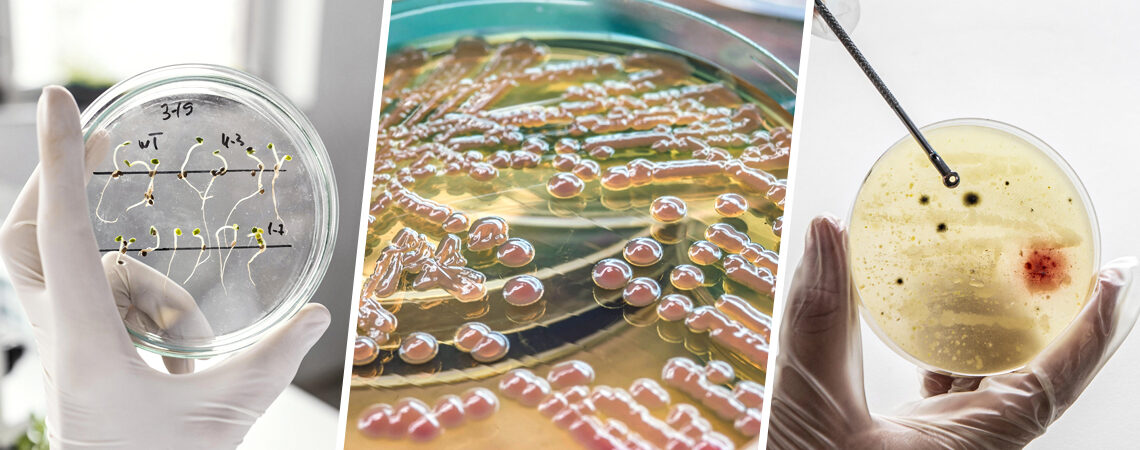Agarose: Essential Polymer for Scientific Research
Agarose is a versatile and widely used polysaccharide primarily derived from the cell walls of certain red algae, such as Gelidium and Gracilaria. It is structurally composed of repeating units of agarobiose, which contains D-galactose and 3,6-anhydro-L-galactose. Agarose forms a gel when dissolved in hot water and subsequently cooled, making it an invaluable material in various laboratory applications.
Properties of Agarose
- Gel-Formation: Agarose can form transparent, stable gels upon cooling, which are crucial for separating and analysing biomolecules.
- Thermal Reversibility: The gels can be melted and re-gelled multiple times, allowing for easy manipulation during experiments.
- Adjustable Pore Size: The concentration of agarose can be varied to create gels with different pore sizes, enabling precise separation based on molecular size.
- Biocompatibility: Agarose is non-toxic and biocompatible, making it suitable for biological applications.
- Low Electroendosmosis: Agarose exhibits low electroendosmosis, which helps to minimize the movement of solvent in gel electrophoresis, leading to better resolution.
Key Applications of Agarose
- Gel Electrophoresis: Agarose gel electrophoresis is one of the most common applications of agarose. This technique is widely used for the separation and analysis of nucleic acids (DNA and RNA) and proteins. Researchers utilize agarose gels to visualize, size, and purify DNA fragments after polymerase chain reaction (PCR) or restriction digestion.
- Molecular Cloning: Agarose is utilized during the cloning process for the purification and recovery of DNA fragments. After digestion with restriction enzymes, agarose gels help in the separation of desired fragments that can be isolated for cloning into vectors.
- Size Exclusion Chromatography: Agarose is employed in size exclusion chromatography to separate biomolecules based on their size. This method is valuable for purifying proteins, nucleic acids, and polysaccharides.
- Cell Culture: Agarose is used to create three-dimensional matrices for cell culture applications. Researchers utilize agarose-based hydrogels to mimic the extracellular matrix, allowing for the growth of cells in a more physiologically relevant environment.
- Protein Purification: Agarose beads, often modified to include affinity tags, are used in affinity chromatography for the purification of proteins. This technique allows researchers to isolate specific proteins based on their unique binding properties.
- Tissue Engineering: In the field of regenerative medicine, agarose is employed to create scaffolds for tissue engineering. Its gel-forming ability supports cell adherence, growth, and differentiation, promoting tissue regeneration.
- In Situ Hybridization: Agarose gels are used in in situ hybridization studies to examine gene expression patterns in various tissues. The gels aid in the immobilization of probes to facilitate hybridization with target nucleic acids.
Advantages of Using Agarose
- Ease of Use: Agarose gels are straightforward to prepare, requiring only dissolution at high temperatures before cooling to form gels.
- Customization: The concentration of agarose can be adjusted to yield gels with specific strengths and pore sizes, allowing for optimized separation conditions depending on research needs.
- Cost-Effectiveness: Agarose is relatively inexpensive compared to other gel materials, making it an economical choice for laboratories.
- High Resolution: Agarose gel electrophoresis provides high resolution for the separation of nucleic acids and proteins, enabling accurate size determination.
Why Choose Seakol bio pharm for Agarose
- When it comes to obtaining high-quality agarose for your research and laboratory needs, Seakol stands out as a trusted provider. Seakol offers a wide range of agarose products that meet stringent quality standards, ensuring reliability and performance in your experiments. Our agarose is specifically formulated to provide optimal gel strength, clarity, and reproducibility, making it ideal for applications in gel electrophoresis, protein purification, and more.
By choosing Seakol bio pharm, you gain access to
- Premium Quality: Our agarose is rigorously tested to meet the highest industry standards, guaranteeing consistent results in your applications.
- Technical Support: Our team of experts is available to assist you in selecting the right agarose product for your specific needs and applications.
- Competitive Pricing: We offer competitive pricing on all our agarose products, ensuring you get the best value for your research budget.
- Diverse Applications: Whether you are working in molecular biology, biochemistry, or tissue engineering, Seakol's agarose products are tailored to suit a variety of laboratory needs.
Conclusion
Agarose is an indispensable tool in modern laboratory research, particularly in molecular biology and biochemistry. Its unique properties of gel formation and stability make it vital for a wide variety of applications, from gel electrophoresis to tissue engineering. Given its versatility and effectiveness, agarose continues to play a crucial role in advancing scientific research and contributing to discoveries in genetics, proteomics, and cellular biology. And for high-quality agarose that meets all your research needs, look no further than Seakol. Contact us today to learn more about our agarose products and how we can support your scientific endeavours!
